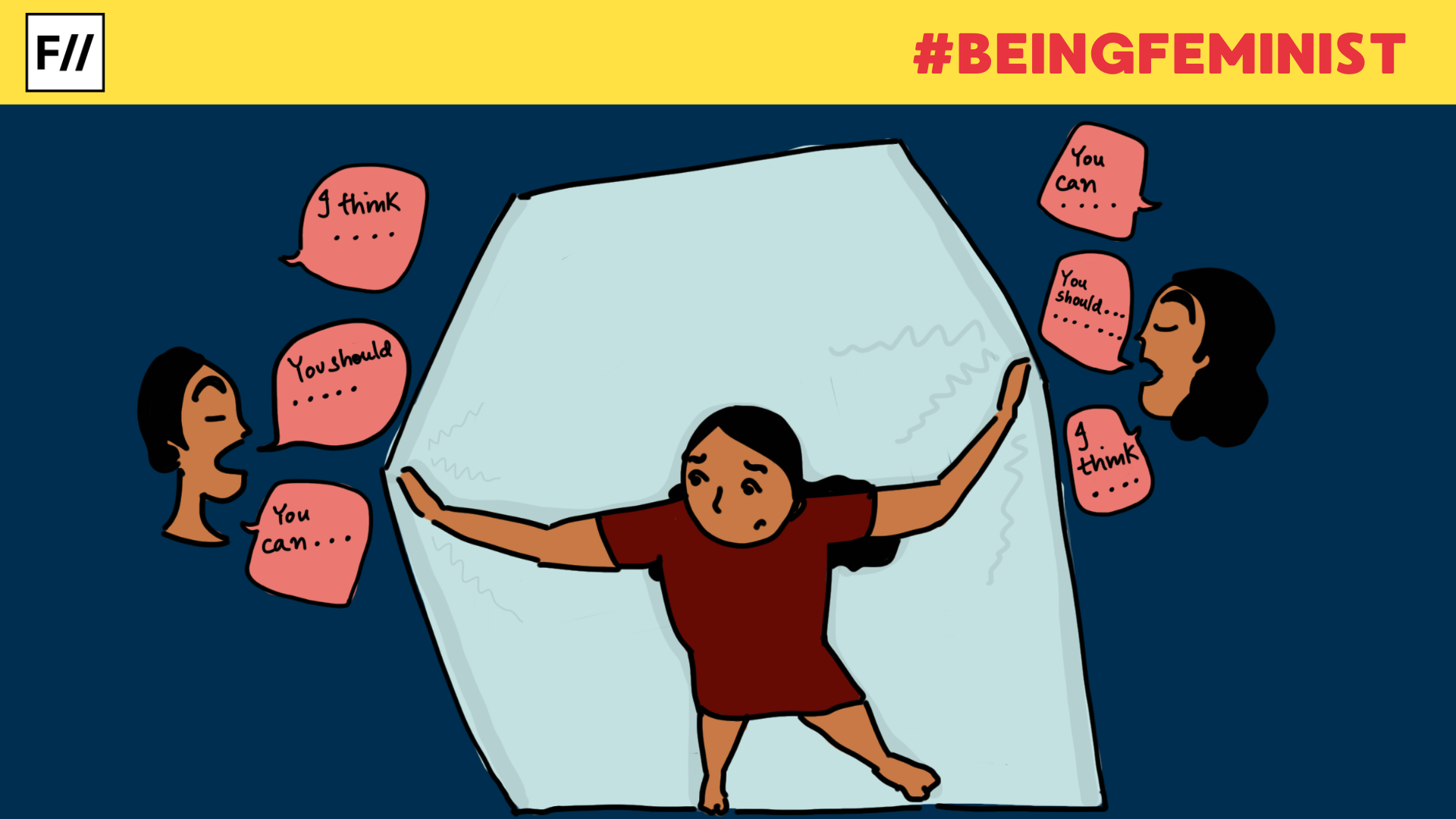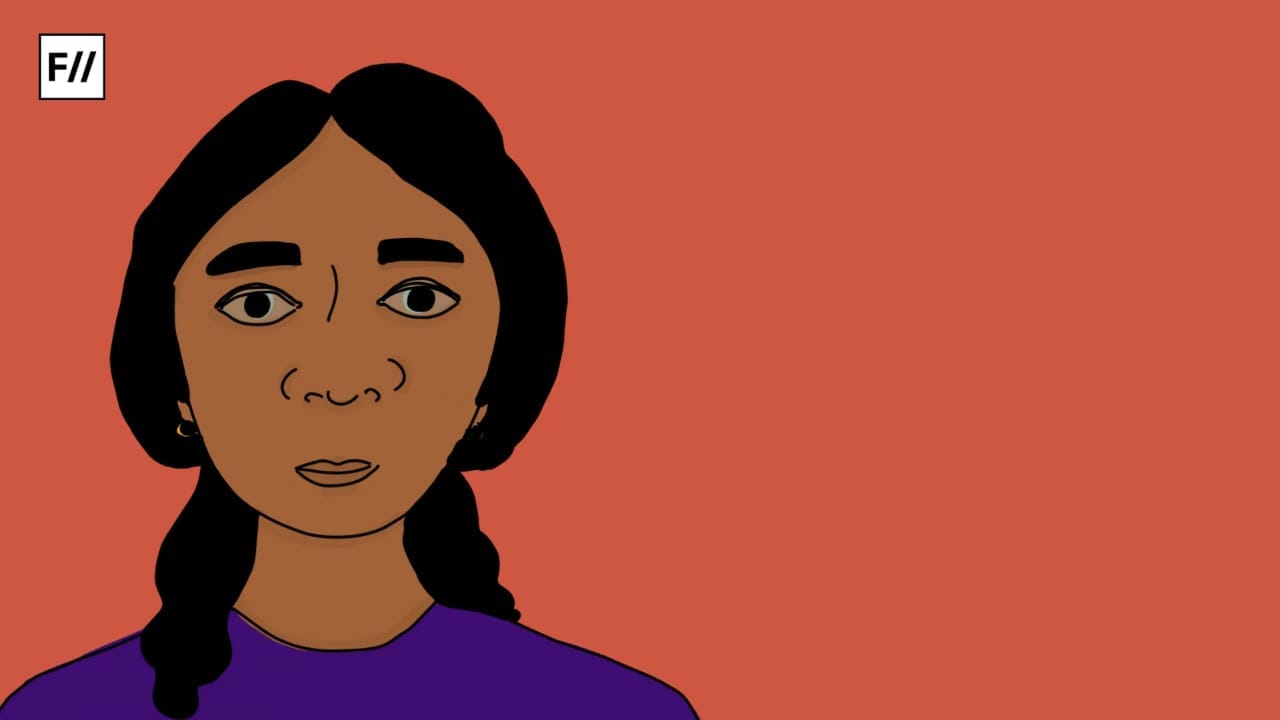It is difficult to nail down the time when I first heard the word “feminist,” let alone recall when I started becoming one. Yet, if I screw my eyes, raise my eyebrows and strain my brain to contemplate, the moment that I would claim as the beginning of my journey to question gender norms and eventually understanding what feminism is, probably the time I refused to buy a hot pink hoodie. I was in seventh or eighth grade- I went shopping and I consciously made the decision to choose a dark purple cloth instead of the bright pink one because “it’s too girly.”
Today I may go on arguing that ascribing gender to colours is a social construct that has roots in historical practices and reflects patriarchal influences, as they have been used to reinforce traditional gender roles, but, back then, it was a sincere attempt to question the prevailing and a conscious effort to defy the existing norm. I wish I could have told my younger self on that day that colour isn’t tied to gender, and I’m free to choose any shade I like.
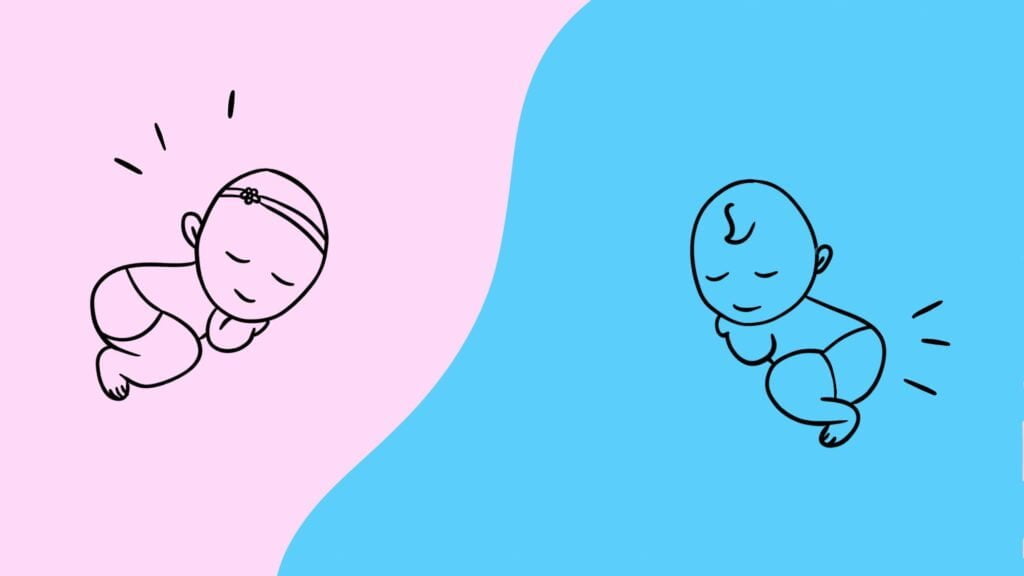
It’s simply a social concept, and there’s no need to diminish the idea of “girly,” colours. Yet instead of seeing it as a mere continuity of patriarchal teachings of belittling one gender and its associated stereotypes, I choose to see it as the start of questioning what I’ve been conditioned to believe as natural.
Tracing the trajectory of becoming a feminist
Being a social science student, the exposure to the theoretical aspect of feminism, the arguments and counterarguments to define what feminism is, and the entire feminist knowledge was inevitable. But long before this systematic learning, there have been active as well as unconscious presumptions, and speculations about what it meant to be a feminist.
Even before understanding the fact that gender biases exist in society, women are discriminated against historically, and there should be an attempt to strive for gender equality, I was conscious of the existence of a section of women defying societal expectations, women who are “different,” “strong,” and “independent.”
Somewhere there was this image of vocal, opinionated, argumentative “other,” women and I cherished them. Today, perceiving women to be progressing only by measuring them in the units of success constructed by patriarchal standards, seems almost sacrilegious to me. But for a seventh-grade kid who is trying to navigate through the confusion and complexities of gender roles, I’ll cut some slack maybe?
The othering of one section of women and the tendency to classify only them as trailblazers has now faded. Because the underlying implication of this childhood perception of women’s empowerment denies the reality of being born as a woman in a patriarchal society. This reminds me of Simon de Beauvoir’s famous statement – “One is not born, but rather becomes, a woman.”
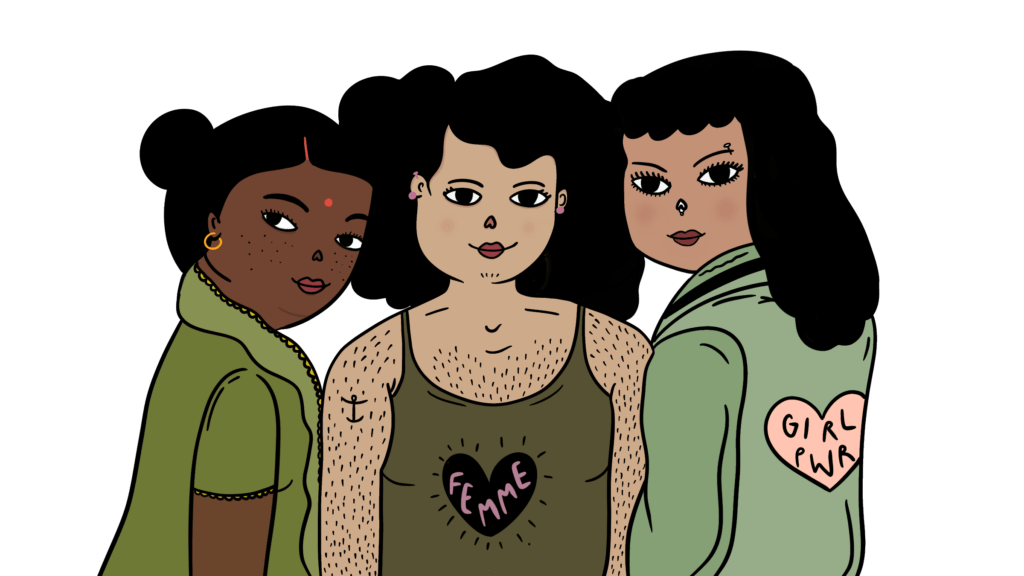
Today I realise that in this journey of becoming a woman from just being a human, one ends up being confined inside the four walls of the household and in fact, accepts the absence of access to opportunities as natural – they conform to the societal idea of “women,” – while other push their way through the societal burden and construct the alternative image of “women,” women who reclaim their space, women who strive to live unapologetically, like Maya Angelo’s ‘phenomenal woman.’
However, while the latter erodes the socially conditioned belief that women have less potential than men naturally and reinforces hope, deeper thinking interrogates – then why not all women? My quest for an answer to it ended when I bumped into the term “intersectionality,” in my undergrad textbook. I realised that other than gender identity, other identities like class, caste, religion, and ethnic identities do not exist in isolation but rather they intersect, overlap and combine together to shape an individual’s unique experience of privilege or discrimination in life.
So today, when I consider myself a feminist, I make sure that I am conscious of intersectionality – I would prefer seeing like an intersectional feminist. Embracing the reality of every woman for who they are and acknowledging what they could have been with their unnurtured potential if society had given equal opportunity like their male counterparts, with no interplay of class, caste, religion, or ethnicity – is what I consider as a holistic understanding of feminism, at least on my part.
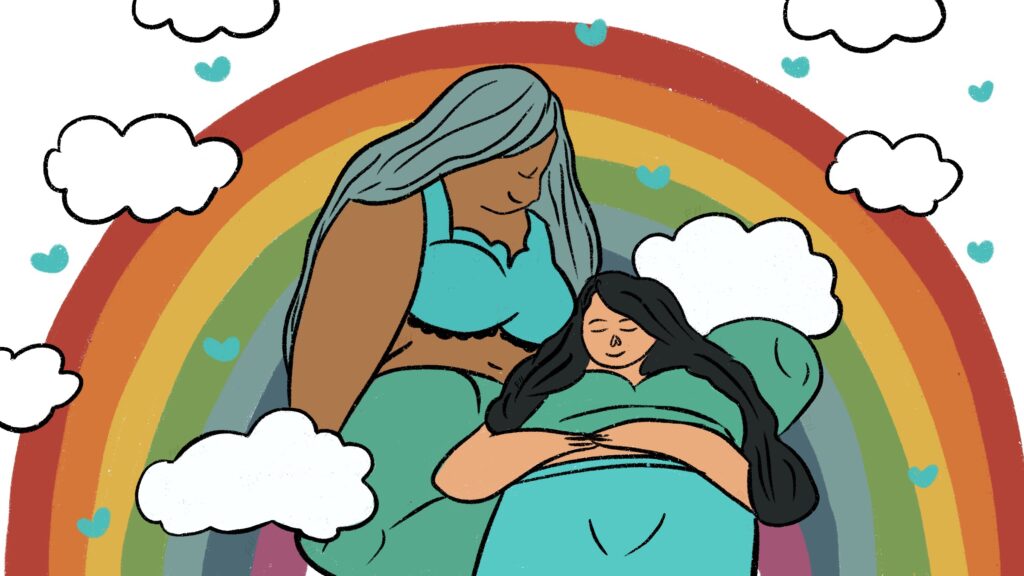
My experience with the idea of feminism will remain incomplete if I do not mention how exposure to feminist literature has helped me in recognising my queer identity and acceptance of it. I believe half of our personal experiences, and emotional feelings go unnoticed because we fail to box them within a word, we fail to express them because of the absence of the right word.
The same happened when I noticed my heart going beyond the permissible territory of love laws (remembering Arundhati Roy’s God of Small Things) and skipped a beat when she saw her high school sweetheart (one-sided, of course)- but oops, it’s a girl! I was perplexed, I was scared. It was only with the acquaintance of feminist literature that the term “bisexual,” rescued me from that teenage plight.
Work in progress
I think being a feminist is not a destination but a journey. It is an everyday process of learning and unlearning. No matter how much I think I’m becoming a feminist, it is difficult to unshackle myself from the clutches of patriarchal societal norms completely.
Buying pink Kurtas for my brother and boyfriend is my guilty pleasure. It is my secret agenda to balance out all the gender injustices historically, starting off with colour biases – or it could simply be my altruistic endeavour to introduce them to the beauty of pink, of which they have been deprived, just like the comfort of crying, maybe?
I still wonder why I shave my armpits, is it simply because of physical comfort or is it because of societal conditioning? I feel embarrassed when I realise I still give in to the social expectation of women being extra caring by choosing to take the not-so-good utensils when friends come over or giving my last brownie bite to my brother.
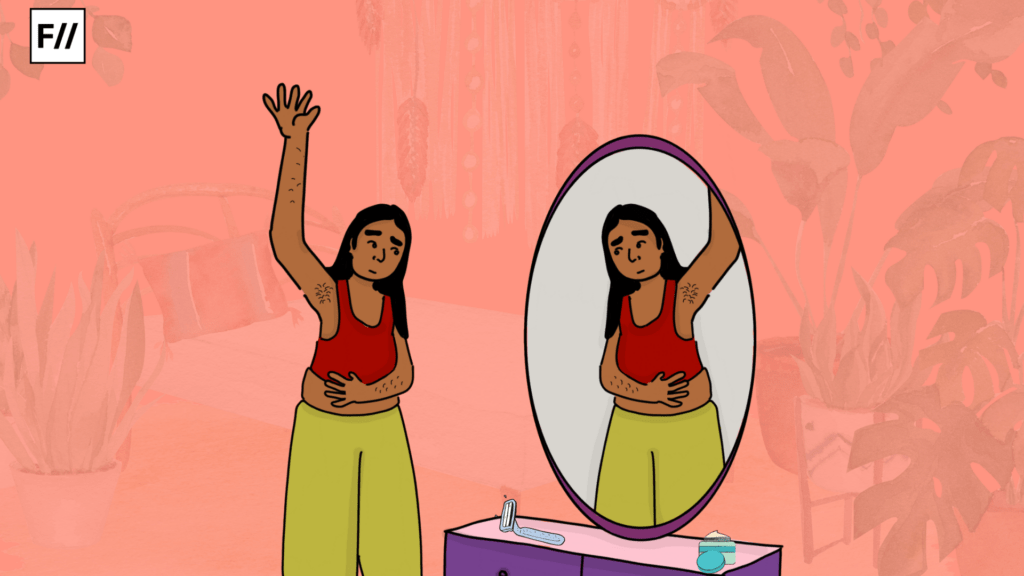
But rather than being disappointed, I congratulate myself for taking a pause and thinking about where it went wrong. While I continue learning and reflecting, I make sure the process is fun too. Buying pink Kurtas for my brother and boyfriend is my guilty pleasure. It is my secret agenda to balance out all the gender injustices historically, starting off with colour biases – or it could simply be my altruistic endeavour to introduce them to the beauty of pink, of which they have been deprived, just like the comfort of crying, maybe?
About the author(s)
I'm a Political Science graduate. My area of interest is identity politics, politics of violence, and post-colonialism. I'm passionate about politics, history, literature and art. I unwind by journaling.
